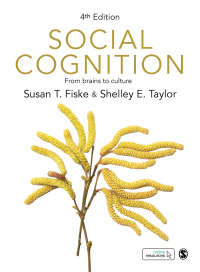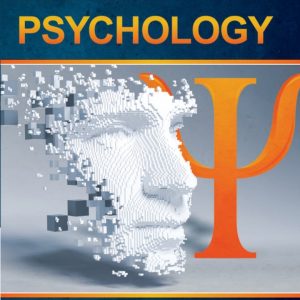Buy Social Cognition: From brains to culture 4th Edition PDF ebook by author Susan T. Fiske; Shelley E. Taylor – published by Sage Publications Ltd (UK) in 2021 and save up to 80% compared to the print version of this textbook. With PDF version of this textbook, not only save you money, you can also highlight, add text, underline add post-it notes, bookmarks to pages, instantly search for the major terms or chapter titles, etc.
You can search our site for other versions of the Social Cognition: From brains to culture 4th Edition PDF ebook. You can also search for others PDF ebooks from publisher Sage Publications Ltd (UK), as well as from your favorite authors. We have thousands of online textbooks and course materials (mostly in PDF) that you can download immediately after purchase.
Note: e-textBooks do not come with access codes, CDs/DVDs, workbooks, and other supplemental items.
eBook Details:
Full title: Social Cognition: From brains to culture 4th Edition
Edition: 4th
Copyright year: 2021
Publisher: Sage Publications Ltd (UK)
Author: Susan T. Fiske; Shelley E. Taylor
ISBN: 9781529702088, 9781000180114
Format: PDF
Description of Social Cognition: From brains to culture 4th Edition:
Through his clinical work and extensive engagement with major figures of the philosophical tradition, Jung developed an original and pluralistic psycho-ethical model based on the cooperation of consciousness with the unconscious mind. By drawing on direct quotations from Jung’s collected works, The Red Book, and his interviews and seminars – as well as from seminal texts by Kant, Nietzsche, Aristotle and Augustine – Giovanni Colacicchi provides a philosophically grounded analysis of the ethical relevance of Jung’s analytical psychology and of the concept of individuation which is at its core. The author argues that Jung transforms Kant’s consciousness of duty into the duty to be conscious while also endorsing Nietzsche’s project of an individual ethics beyond collective morality. Colacicchi shows that Jung is concerned, like Aristotle, with the human need to acquire a balance between reason and emotions; and that Jung puts forward, with his understanding of the shadow, a moral psychology of the Christian notion of evil. Jung’s psycho-ethical paradigm is thus capable of integrating ethical theories which are often read as mutually exclusive. Psychology as Ethics will be of interest to researchers in the history of ideas and the philosophy of the unconscious, as well as to therapists and counsellors who wish to place their psychodynamic work in its philosophical context. It will also be a key reference for undergraduate and postgraduate courses and seminars in Jungian and Post-Jungian studies, philosophy, psychoanalytic studies, psychology, religious studies and the social sciences.





